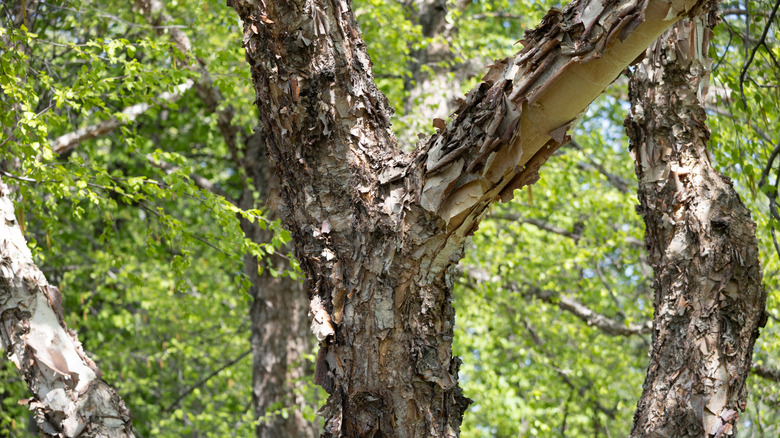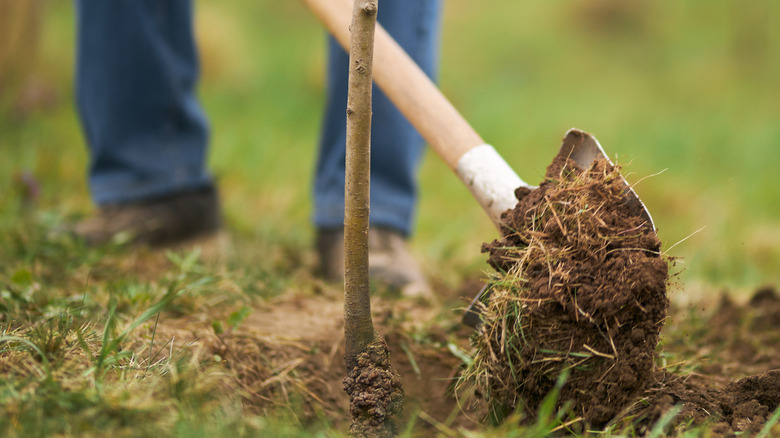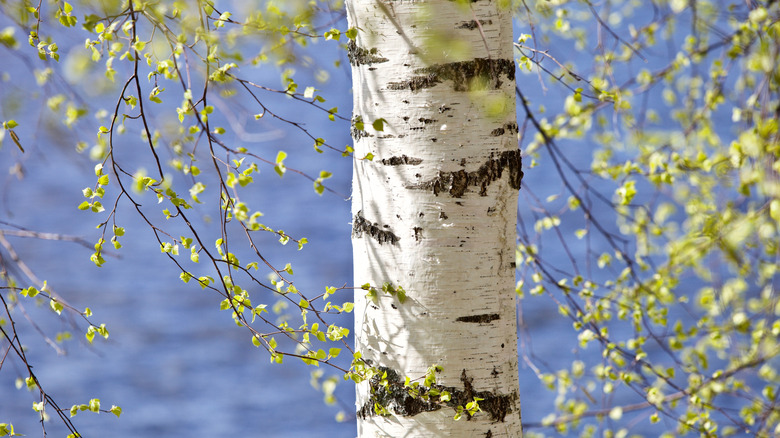Why Your River Birch Tree Won't Grow (And What To Do About It)
River birch trees have been described as a fast-growing tree that'll provide natural shade to your yard. It often grows in wetter soils and helps work against erosion caused by floods, which is why the river birch tree is often seen near rivers. However, you may have started to notice that your river birch tree just won't grow properly. House Digest spoke exclusively with John Snow, Senior Urban and Community Forester of Tree Check Up and Board Certified Master Arborist, to learn about why this happens and how you can fix these concerns.
According to Snow, some of the most likely reasons your river birch tree isn't thriving have to do with the soil quality, drainage, and the way the tree was planted. "River birch is susceptible occasionally to iron chlorosis (yellowing of the leaves) in soil with high pH or alkaline soils. While river birch like moist soils, that doesn't mean they grow IN the river." Snow explained that the tree usually shows signs that it has too much water through yellowing leaves or too little water through wilting, brown leaves.
Snow also stressed the importance of properly planting your tree — no matter the type. "Dig a $50 hole for a $5 tree when planting ANY tree. You generally only get one chance to plant your tree right," Snow said. When you don't properly plant the river birch tree, it often causes problems when it comes to water and root growth.
How to identify what the problem is with your own tree
Luckily, once you know what these problems are, you can more easily help your river birch tree continue to grow. When John Snow spoke exclusively with House Digest, he explained that it may be difficult for the average gardener to identify what the exact problem with the river birch tree is, and it may be a combination of multiple concerns. He suggested contacting a local ISA Certified Arborist for help.
However, if this option doesn't feel accessible to you, Snow did provide some tips. "As a good rule of thumb, look down when the top of the tree shows problems," Snow said. "It probably is related to a root or soil issue. For the DIYer, start with a soil test to determine your soil's quality and monitor the soil moisture. Soils should be moist, not soaking wet." He also suggests you check the roots to make sure the tree was planted properly.
How to keep your river birch tree healthy
To continue to keep your river birch tree healthy, John Snow gave some growing advice during his exclusive interview with House Digest. First, you should know the amount of sun that your plant needs to be happy. River birch trees like full sun, so make sure you don't plant them in a shaded area. This will help you choose the best place in your yard to grow birch trees.
Snow also suggested planting mulch around the tree. "One of the most economical ways to benefit ANY tree is to properly mulch the tree with an organic mulch (not rocks)," Snow said. "The benefits of mulch include moderating soil temperatures, reducing watering needs, adding organic matter back into the soil and many others."
Growing and learning about trees can be a fun hobby, and it teaches us more about our environment. River birch trees may be one of many gorgeous trees with white bark that create striking backyard contrast, and it also helps protect the landscape near rivers. How cool is that?


